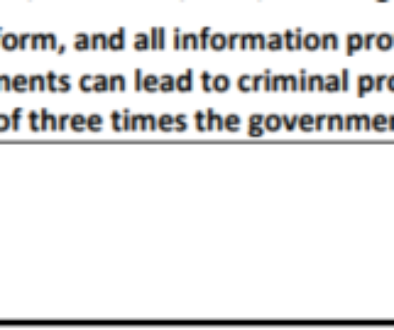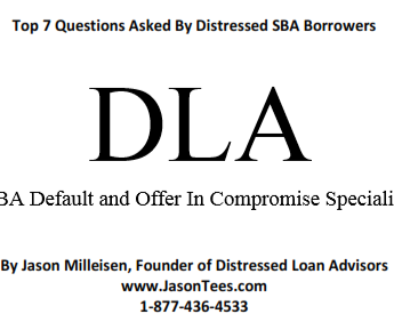A few times a week, I receive calls from business owners who have filed, or are planning to file for personal bankruptcy.
The reason that most of them file for personal bankruptcy is due to the crushing amount of debt they owe in connection with their failed or failing business. For most, their SBA loan is the single largest obligation, but many also owe landlords, credit cards, and vendors.
For those who are not aware, a discharge from chapter 7 personal bankruptcy pretty much wipes the slate clean. Once a bankruptcy judge grants you a discharge, almost any debt that you are personally responsible for is cancelled, meaning that the lender has no legal recourse against you. There are some exceptions, such as government guaranteed loans, that cannot be discharged. Of note, SBA loans absolutely can be discharged in chapter 7.
Many people believe that chapter 7 bankruptcy is a cure all that can extract you from a life of law suits and collection calls. But there is one major fact that many people miss:
DISCHARGE FROM CHAPTER 7 PERSONAL BANKRUPTCY WILL NOT RELEASE A LIEN ON YOUR HOME.
So what could this this mean to you?
It means that if you pledged your home as collateral for your SBA loan, filing for, and being discharged from, personal chapter 7 bankruptcy will not extinguish the lien. It also means that if you have equity in your home, your lender may foreclose on the property. That’s right, even though you personally are no longer responsible for the debt, your home can be taken via foreclosure sale.
Even if there is no equity in your home, it doesn’t mean that you are in the clear. Why? Even if there is no equity today, that may not always be the case. There are two basic events that can create equity in your home:
1) The Value of Your Home Can Increase. Home prices are currently at their lowest level in years. Let’s say that your home is worth $200,000 today, and that you owe $200,000 on your mortgage. In such a case, your SBA lender would not be interested in foreclosing. However, if the value of that home were to increase to $350,000 (thereby creating equity), you’d run the risk of foreclosure at some point in the future.
2) As Time Passes, You Will Be Paying Down Your Mortgage. Even if your home value does not increase in value, the fact that you are making monthly mortgage payments will in fact create equity. Staying with the example above, let’s say your home is worth $200,000 and you owe $200,000 on your mortgage. Let’s assume that the economy stays in the toilet for the next 10 years and your house value remains constant. Even in that case, your mortgage balance will be falling as you make payments, so eventually you will only owe $100,000 on your mortgage. You know that means….equity! Once again, such a situation could make your home susceptible to a foreclosure in the future.
Overall, the point of my article is to explain that while bankruptcy may be the right option for some, it’s definitely not a “get out of jail free” cards in all situations. To better understand your options, I always recommend that borrowers speak with both a bankruptcy attorney and an SBA workout expert in order to make the most informed decision possible.
Distressed Loan Advisors (http://www.JasonTees.com) offers expert advice about dealing with SBA Loan Default and Forgiveness, and can be reached at . or..


